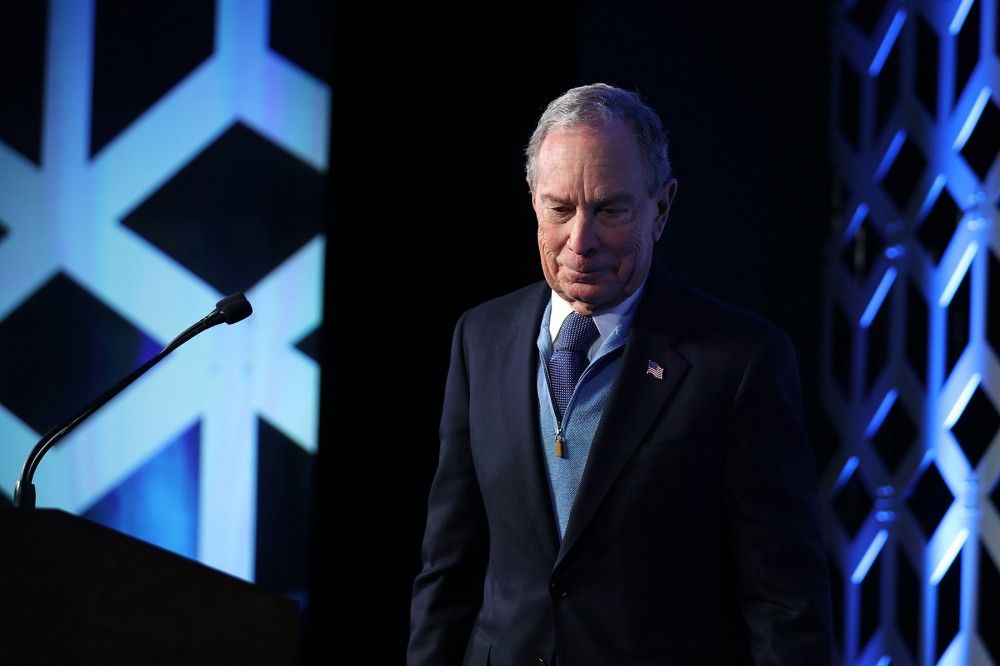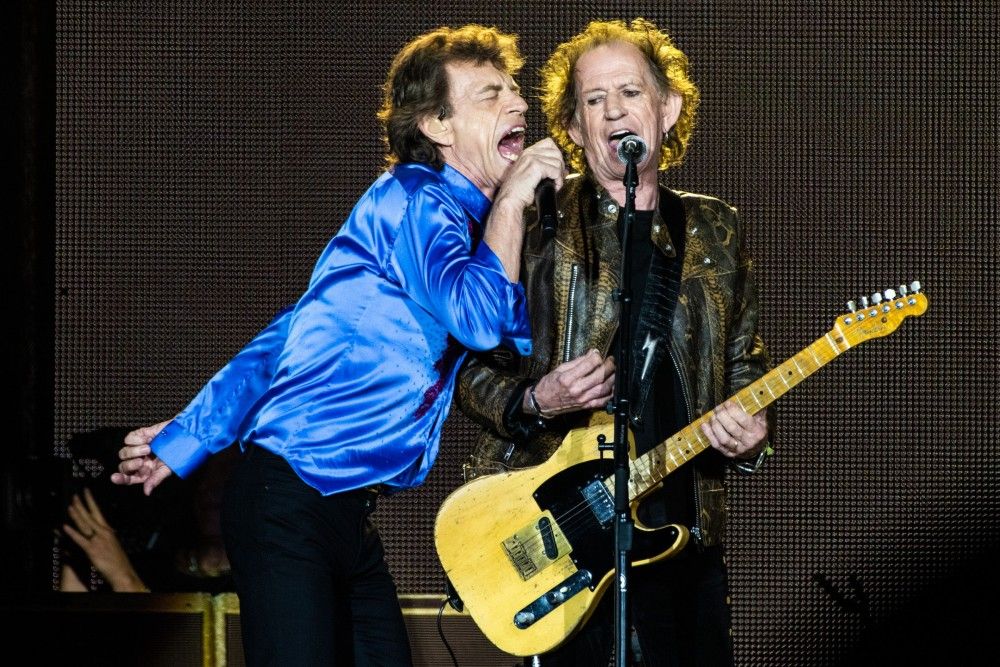
Democrats Are In Love With Mike Bloomberg's Money — If Not Bloomberg Himself
CHARLOTTE, N.C. — Gail Dunham couldn’t stop gushing about Mike .
It was Saturday night at the North Carolina Democratic Party’s Blue NC gala, one of those lanyard-laden rubber-chicken dinners that brings together Democrats from across the state. I’d spotted Dunham, the former mayor of Summerville, in the hallway outside the ballroom wearing a North Carolina for Bloomberg button. Dunham told me she supported Bloomberg because she admired his company and appreciated that he’d chosen to spend the latter years of his life trying to, as she put it, “save the country.”
But what she really liked about Bloomberg was his money and his team. How he would help elect Democrats up and down the ticket, she said. “If you believe in everything the Democratic Party stands for, Bloomberg has that professionalism to be helpful to everyone on the ticket,” she said. “No one else is able to do that.”
I asked her if she felt queasy watching Bloomberg dip into his vast fortune to buy his way into the Democratic presidential race.
“I don’t care!” she said, bristling at the question. “It’s his money. I’m thankful for it.”
Do you remember the old cartoon trope where the wolf looks at the pig and the pig dissolves into a pile of bacon before the wolf’s eyes? That’s what it feels like with Mike Bloomberg: When some Democrats look at the former New York City mayor, they see a huge pile of money and all the things Democrats could do with that huge pile of money.
After only a few months into his campaign, Bloomberg has already spent more money on advertising than any other presidential candidate in U.S. history. In North Carolina, he’s opened 11 field offices and hired 125 staffers, giving him a stronger presence here than any other candidate here and quite possibly the state Democratic Party itself. The same is true is dozens of other states, especially those that vote on Super Tuesday, the make-or-break moment for Bloomberg presidential bid now that ’s campaign is showing signs of life.
If Bloomberg does prevail on Super Tuesday and roll on toward the Democratic convention this summer, it won’t be because he’s a talented campaigner. At the North Carolina Democratic Party dinner, he strode onstage to the sound of U2’s “Beautiful Day” wearing a Tarheel blue sweater under his suit.
He opened his speech with a lame joke: “The big crowd here is proof…that North Carolina Democrats know how to put the party in party dinner.” He took a half-hearted dig at his fellow Democrats (who were in South Carolina for primary night or off campaigning in other states) for not having the courage to come here (Amy Klobuchar was the only other candidate to speak) and told the audience that mustard is not a real barbecue sauce.
Reading stiffly from the TelePrompter, Bloomberg told the audience what he’s told every other crowd: “If you ask what my campaign is about, I am running to defeat Donald Trump.” The rest of his pitch is one general platitude after another — a pledge to “put the united back in the United States of America,” to “start getting things done,” and so on. By the 10-minute mark, I noticed half a dozen bored millennials in the crowd buried in their phones.
But at the core of Bloomberg’s pitch is his wealth and what he can do with it. “I believe we need a leader who is ready to be commander in chief, not college debater in chief,” he said. “So if you want someone who talks turkey and has a record of accomplishment on all the big issues facing our country and has the resources to beat Trump, that’s me.”
When he talks about his work on gun safety or the climate crisis, he’s really talking about the success he’s had with the tens of millions of dollars he’s poured into groups like Everytown, Moms Demand Action, and the Sierra Club. What’s different now is that the cause is himself, and the issue is the presidency of the United States.
“There’s no better investment I can make in the future of our country than spending to get Donald Trump out of 1600 Pennsylvania Avenue,” he says. ” And if you think my campaign is expensive, just imagine what four more years of Donald Trump will cost our country.”
When I talked to Bloomberg supporters at the Blue NC dinner, they didn’t talk about Bloomberg’s charisma, his policies, or his theory of change for beating Trump. They talked about how Bloomberg’s money and campaign operation — which he’s pledged to keep in place through November whether he wins the nomination or not — could help flip state legislative seats.
And who can blame them? If you’re a North Carolina Democrat, you’ve seen firsthand how a smart investment of a few million dollars can make all the difference.
In 2010, a wealthy Republican donor named Art Pope engineered a takeover of the state’s legislature funded by millions of dollars in dark money. The newly empowered Republican Party pushed through a gerrymander so brazen that a state evenly divided between Democrats and Republicans elected a congressional delegation with 10-3 advantage to the GOP.
Tom Hendrickson, a real estate investor and former chairman of the North Carolina Democratic Party who had recently switched his support from Biden to Bloomberg, brought up Pope when I interviewed him before the Blue NC dinner. It had taken a decade of court battles to roll back the North Carolina GOP’s gerrymandered maps.
Hendrickson told me he had his eye on the next round of redistricting in 2021. In Bloomberg, he said he saw the potential to put Democrats in power in time to redraw the political maps for the next decade. “We need to win in those down-ballot races. We can’t have another Walter Mondale or a Michael Dukakis where they can only afford to compete in the absolutely essential states. Bloomberg has shown he has the resources to compete all over the country.”
Bloomberg’s supporters also saw another benefit to his wealth: It made him immune, they said, from the lobbyists and one-percenters that other candidates relied on to fund their campaigns.
After the dinner, I spoke with J.R. Gorham, who was the first African American brigadier general in the North Carolina National Guard, a banker, and an author. A campaign co-chair for Bloomberg in North Carolina, Gorham compared Bloomberg favorably to the military he served in for 38 years. Both, he said, had resources, infrastructure, and teams.
“But more important than that the reason why we win is because we have integrity,” he said. “That’s what I like about him. He’s got a lot of money and he’s got integrity. And he will not have to bow to special interests because he didn’t go to them for money. He doesn’t need it.”



